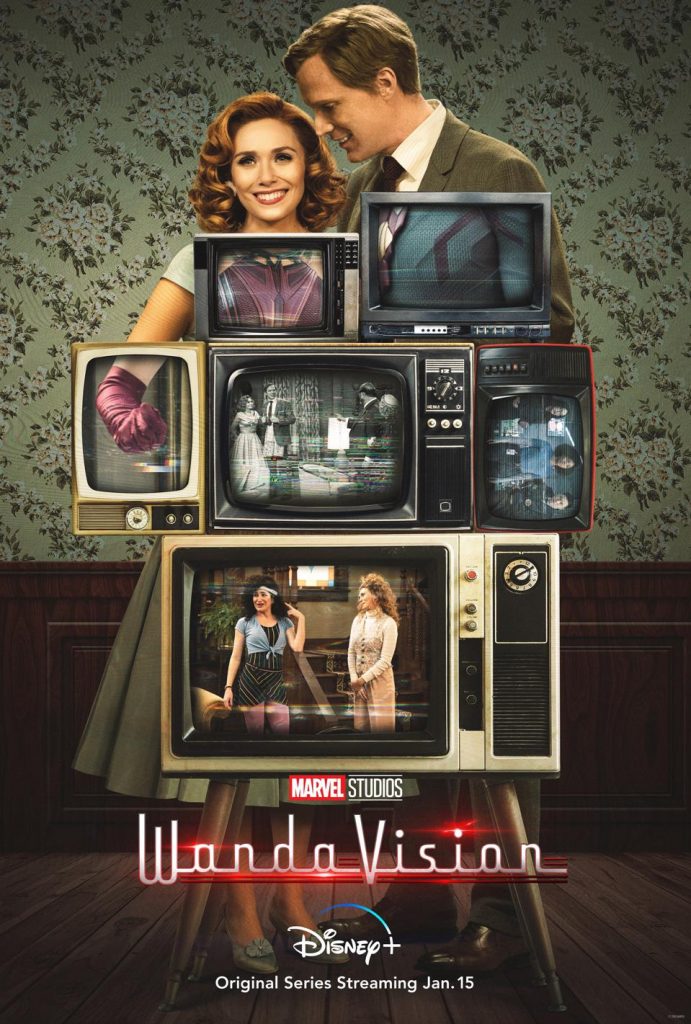
There’s something very weird about the husband and wife that have just moved into the unassuming town of Westview. The man goes to his job and then has to ask his employees what it is exactly the company does, inexplicably mentions out of nowhere that he doesn’t eat food, and his beloved has the ability to levitate objects and create things out of midair. And where is this country called Sokovia she’s talking about coming from, which apparently explains her strange customs?
In truth, it’s an alternate reality created by Avengers members Wanda “Scarlet Witch” Maximoff (Elizabeth Olsen) and the android Vision (Paul Bettany), who are hiding away from the outside world in an idyllic suburban utopia- or at least that is the plan. WandaVision is a new Disney+ series from Marvel Studios developed by the Black Widow screenwriter Jac Schaeffer that obviously draws on plenty of nostalgic charm, but also has a subversive and uncomfortable aspect to it.
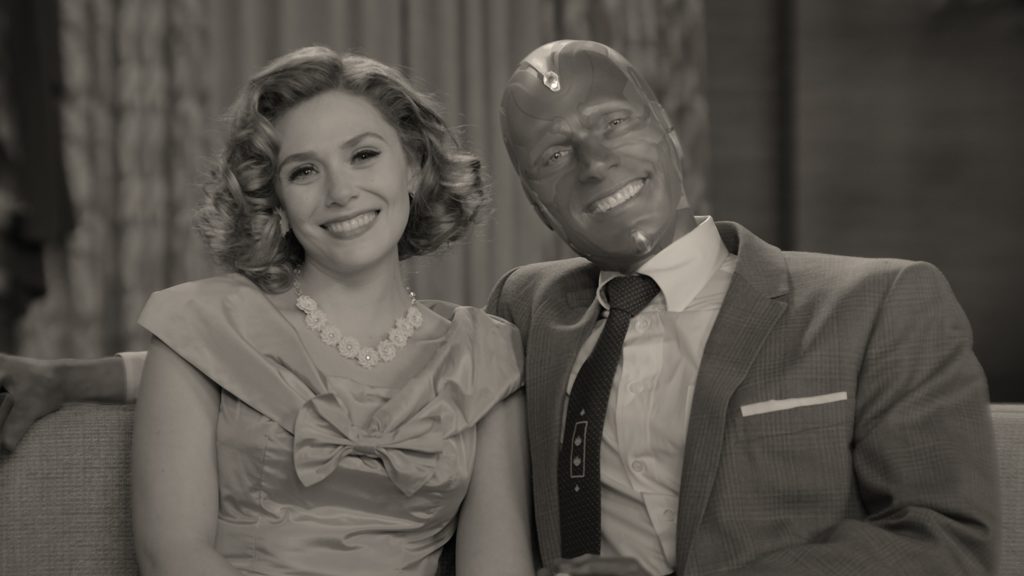
While the series is advertising a gradual evolution through different styles and eras of sitcom history for Vision and Wanda to work with, these first two episodes showcase them in the quirky black-and-white television days, with nods in the title sequences to Bewitched and I Love Lucy. In fact, Dick Van Dyke himself was consulted for some of the early storylines, and it shows as Vision awkwardly stumbles into the room over some furniture.
Olsen and Bettany have a super sweet and cute appeal together as they navigate the town’s social jungles, from getting involved in the local bigwig Dottie (Emma Caufield, who gleefully and cruelly instructs her guests to clap), joining the neighborhood talent show with a magic show act, to hosting a dinner party for Vision’s boss (Fred Melamad, asking a ton of sus questions).
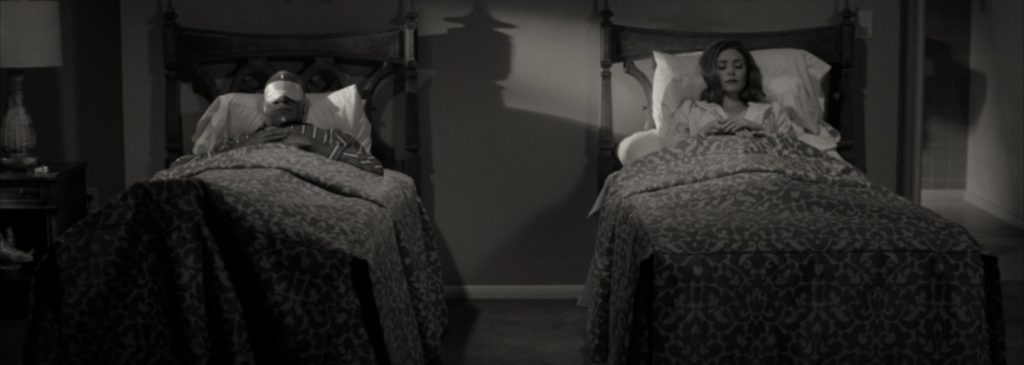
Along the way there are not just interesting easter eggs relating to the MCU, like fake commercials for Stark Industries-created products (and does that Stucker designer watch have a Hydra logo on it? WTF?), but also hints of something or someone on the outside trying to contact them, like the radio calling out to Wanda in the middle of a Beach Boys song, or a random bright red toy helicopter sitting in their monochrome bushes.
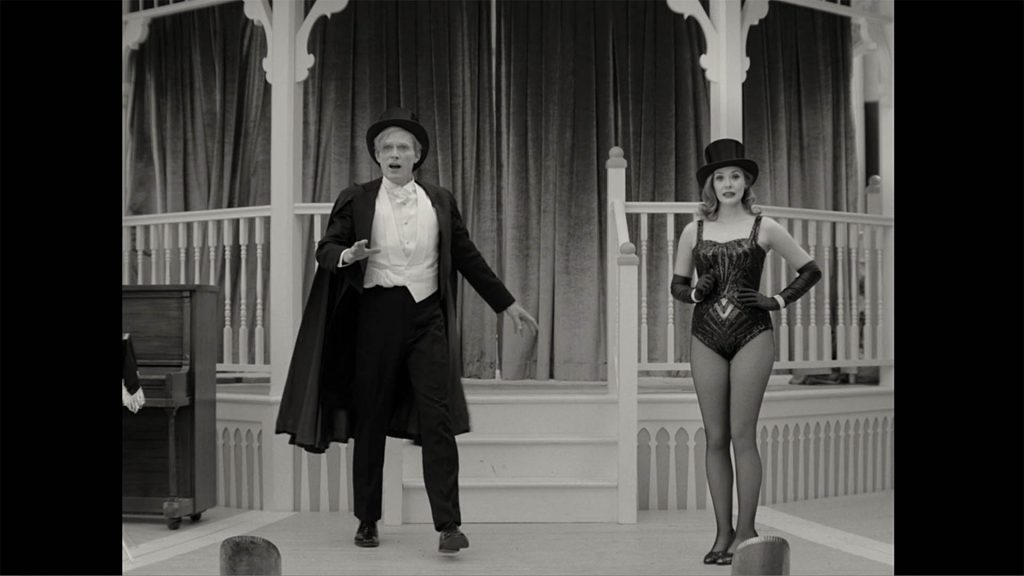
What I’m gonna say might sound odd, but there’s an odd factor as to what makes WandaVision so interesting- and it’s bullshit. Not bullshit as an adjective, I mean as a noun, the key element that adds to the fun. The whole premise is built on a lie, a first impression of this idyllic couple that’s clearly too good to be true but they go with it because it makes them happy. The audience is told early on that bullshit is the name of the game here, and then the story begins.
Essentially, Vision and Scarlet are kids inside a pillow fort. This is a base instinct of survival that even kids can relate to, when they’ve had enough of the harsh outside world and build their own psychological play fortress to escape. But you were never able to hide behind those pillows and plushies forever, soon it was time to make your bed and sleep in it. There are signs all around them that the center cannot hold, and Wanda and Vision will be forced to wake the heck up (and probably have to save the world, yet again).
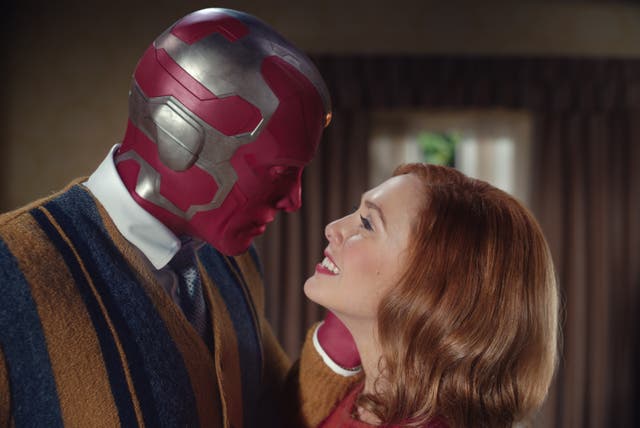
We don’t talk a lot about credit sequences, do we? Because especially since they’ve often been moved towards the end of a production in modern-day Hollywood- most notably in many superhero-themed works- they’re so stylized that they’re often impressive works of art in their own right.
The closing credits that punctuate the pilot episode are colorful but eerie and haunting, with Christophe Beck’s score only adding to the atmosphere, and are a good hint of the underlying darker elements behind Vision and Wanda’s happy façade. Bettany’s gone on record stating he knows the series can’t maintain this lighter direction forever without some changes down the road, and the show does do a nice job in both taking advantage of its premise and setting up potential future conflicts.
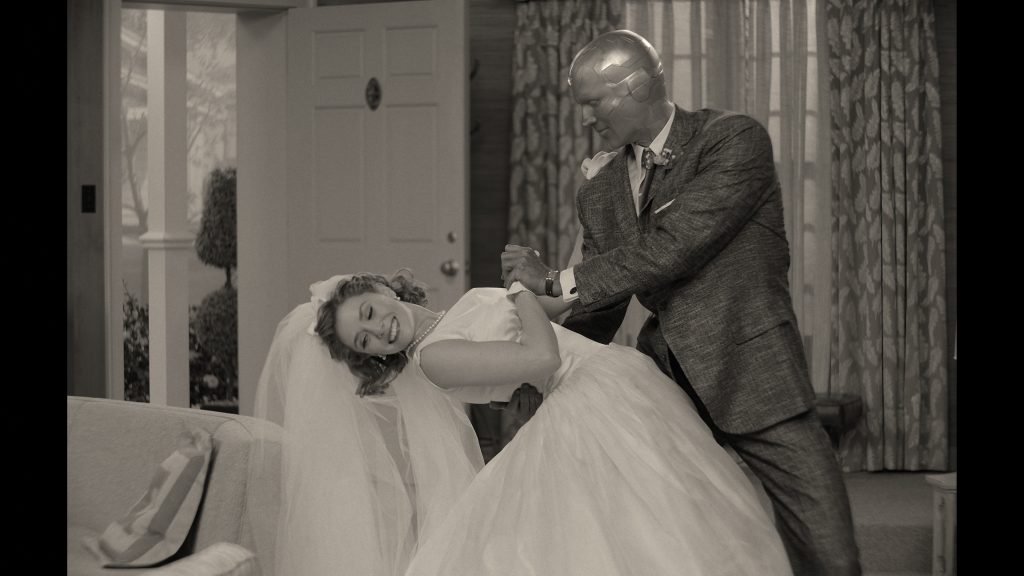
Overall, even though the show is likely to “grow the beard” and become gradually more intense and action-oriented, WandaVision is a unique change of pace for the MCU that pays some loving tributes to various eras of entertainment. Superheroes almost always capture more people’s interest when they’re willing to experiment with the audience’s expectations, and here’s a prime example so far of how to pull this off. If you’ve checked it out, write us up on FAN’s social media and let us know your take!
